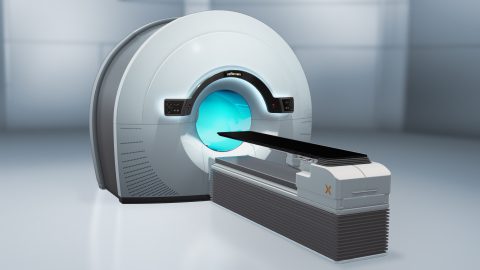RefleXion Medical, Inc., a therapeutic oncology company pioneering biology-guided radiotherapy* (BgRT) as a new modality that will one day treat all stages of cancer, today announced the sale of its RefleXion™ X1 machine to The Center for Cancer and Blood Disorders, a free-standing cancer treatment center with 15 locations throughout northern Texas.
“We are thrilled to bring the promise of biology-guided radiotherapy to the Dallas-Fort Worth Metroplex,” said Barry Russo, CEO of The Center for Cancer and Blood Disorders. “We have a long history of offering our patients the latest advances in cancer therapies, clinical trials and cancer research, and BgRT continues this convention. The multi-modality nature of the RefleXion X1 machine will allow us to eventually offer advanced radiotherapy for all stages of solid tumor cancers, even in cancers where it has been traditionally infeasible to do so.”
The RefleXion X1 machine is cleared for clinical use in stereotactic body radiotherapy (SBRT), stereotactic radiosurgery (SRS), intensity modulated radiotherapy (IMRT), and forms of conventional radiotherapy indicated for early-stage cancers, or palliative relief of symptoms for later-stage cancers. BgRT, currently under development, is designed to treat both early and late-stage cancers.
BgRT uses biological emissions from a patient’s cancer cells created by injecting a small amount of a targeting molecule carrying a positron-emitting radioisotope known as a PET tracer to guide radiotherapy. As the PET tracer binds to the tumor cells, it produces emissions that signal the cancer’s location. The RefleXion X1 machine detects these emissions using PET detectors and responds in real-time to direct radiotherapy to each tumor and destroy it, even in moving tumors.
“We are gratified by the commitment and enthusiasm of the clinicians at The Center for Cancer and Blood Disorders for our RefleXion X1 platform,” said Todd Powell, president and CEO at RefleXion Medical. “This sale expands our commercial momentum into the southern United States, a large and growing market known for embracing new technologies that deliver cutting-edge patient care.”
Installation of the RefleXion X1 machine, which will be located at the main campus in Fort Worth, is expected to begin in early 2022.



